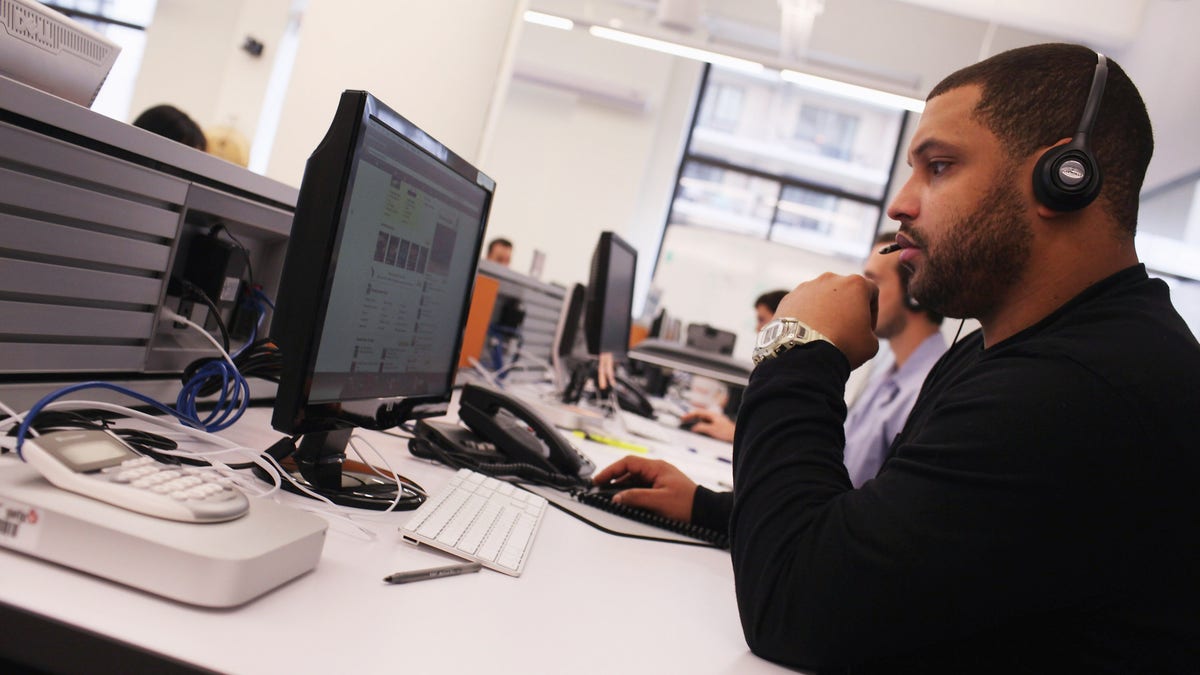
NEW YORK, NY - OCTOBER 26: Employees of the online review site Yelp watch as New York City Mayor Michael Bloomberg speaks at the new East Coast headquarters of the tech company on October 26, 2011 in New York City. The Bloomberg administration has been heralding and working to facilitate the tech sector in New York City in hopes of making New York City a rival to Silicon Valley for start-up companies. (Photo by Spencer Platt/Getty Images) (2011 Getty Images)
For more than three decades I have worked in the technology industry, watching immigrants in this country contribute to this and every other sector, diversifying America’s ideas and cultures, and driving global growth with technology solutions. I have also watched peers and friends struggle with a dated immigration system that stifles both lives and industries. Many have packed up and left the country with their families rather than wait for reform.
But things are changing and we are close — it feels like reform is on the horizon. For 30 years, I have waited for this moment. Yet the future is still uncertain for so many others who are just like me.
Our greatest scientists are disproportionately foreign-born; immigrants are more than twice as likely to start a business as the native-born; and U.S. science and engineering programs are increasingly dependent on students who come from abroad.
I am a serial entrepreneur, a technology pioneer, and a Cuban immigrant. My first company, WorldChain, was working on cloud computing before that industry existed. WorldChain’s hosted cloud-based system helped PC and tech companies including Dell, Gateway, Network Appliance, StorageTek, and Verifone remove hundreds of millions of dollars in excess inventory from their operations and improve service levels. As Founder and Chief Technology Officer, I created a portfolio of pioneer software patents, several of which have revolutionized supply chain management in the cloud.
My work has led to the creation of countless high-paid American jobs and millions in economic growth for our country. My story is not uncommon, but it is not as common as it should be. Our current immigration system keeps entrepreneurs just like me from doing what I did in this country. Even so, our greatest scientists are disproportionately foreign-born; immigrants are more than twice as likely to start a business as the native-born; and U.S. science and engineering programs are increasingly dependent on students who come from abroad. Every engineer creates many other local support jobs. They also boost the local service economies by frequenting local small businesses where they work, live, and play. Up to 4.3 non-tech service jobs including teachers, food industry workers, and others are created for every tech worker, according to the Bay Area Council.
Right now there is an alarming decline in American startups and job creation. Job creation has declined from a peak of 4.1 million in 1994, prior to the Dotcom era, to 2.5 million in 2010, according to a Bureau of Labor Statistics report. We need to correct the situation quickly with immigration reform or risk disruptive innovations and industry segments being created offshore out of necessity. According to Gallup Chairman’s Blog we are ignoring a “Five-Alarm Fire” in our new economy; the report states that we need two million start-ups per year just to get back to full employment. We need to attract more talent and keep more talent here; we need to launch companies faster in order to help rebuild an agile, global American-led workforce.
The combination of fewer start-ups and a serious and growing skills gap in Silicon Valley and the nation overall means slow growth for our tech economy. America will face a projected shortfall of 200,000 jobs in science, technology, engineering, and math fields by 2018. I am working to remedy that here in California. I developed an accelerated training program, BPR Cloud Academy that prepares Americans and new Americans for start-up work. I am launching the program for immigrant entrepreneurs at Mama’s Art Cafe in San Francisco and for Vets at Vet-Tech in Sunnyvale. I am also a mentor and partner with two immigrant incubators — Manos Accelerator in San Jose, Cibola Incubator in Chicago. They are helping to develop pathways to start-ups for immigrant Latinos like me who came here to be a part of the American Dream.
My personal economic development track record is typical. It demonstrates the impact immigrants have on innovation, job creation, and export trade. We love this country and we are contributing to its future success – it is our success too.
